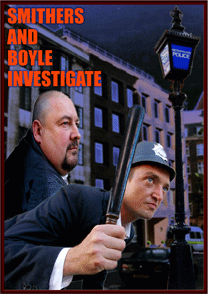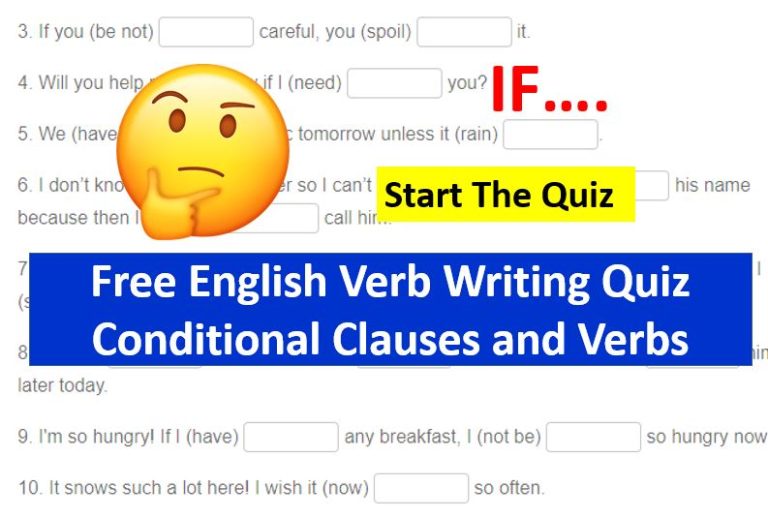8 Ways To Use MIGHT In English

How many meanings does MIGHT have in English?
Hello, I’m Jane at DailyStep English. MIGHT has many uses in English, and in this Free English Grammar Lesson from DailyStep English, you will learn all the ways to use this versatile word. Usually, it is a MODAL, but it can also be used as a NOUN.
Please speak along with me as you listen to the lesson, as this will improve your English pronunciation.
If you are new to DailyStep English – welcome 🙂 Please sign up here for more free Audio Lessons.
How To Use MIGHT
by Jane Lawson at DailyStep.com
MIGHT is an English modal. On other words, it gives special meaning to a verb. Examples of other modal verbs are CAN, MAY and COULD.
When you learn a modal verb, always remember that modals have multiple uses. It is easy to think that you know how to use MIGHT. But do you? Check your understanding here.
Meaning 1:
We use MIGHT to express possibility, sometimes for things that we think are not very likely to happen.
Examples:
1. I might travel to Australia next year, if I have enough money. (note: the speaker thinks it is not very likely that she will travel to Australia.
If she thinks it is more likely, she will use ‘” I may travel…” ..’ or “Perhaps/Maybe I will travel…”)
2. It might have stopped raining by now. But then again, it might not.
(note: the speaker thinks that it is possible that the rain has stopped, but there is also a possibility that it still raining.)
3. It was raining so hard that the roof might have collapsed. (note: here, the roof did not collapse, but it was a possibility.)
Meaning 2:
MIGHT is the past of MAY, especially when reporting what someone else has said or thought.
If ‘might’ is used with the verb ‘ask’, then the sentence is formal.
Examples:
1. She said it might be a good idea to take the train instead of the bus. (note: her actual words at the time were either ‘It may be a good idea to take the train instead of the bus or ‘ It might be a good idea to take the train instead of the bus.’)
2. I think I might go for a swim later. (note: here, I am reporting something that I thought. My actual thoughts could have been “I may go for a swim” or “I might go for a swim.”)
3. He asked me if he might use my telephone. (note: This sentence is very formal and sounds old fashioned.. His actual words were “May I use your telephone.”
In general or informal English we would report this by saying “He asked if he could use my phone.”)
Meaning 3:
We use MIGHT as a very polite form of MAY or COULD when we are asking for permission.
Using ‘might’ in this way sounds very formal and a little old-fashioned.It is used mainly in UK English. If ‘might’ is used with the verb ‘ask’, then the sentence is formal.
Examples:
1. I wonder if I might borrow your pen for a moment. (note: this is very formal and very polite!)
2. I’d like to ask if I might visit you sometime. (note: in both examples 1 and 2, the request for permission is in the structure ‘…if I might’)
Meaning 4:
We use MIGHT to make a suggestion or suggest a possibility in a polite, indirect way.
Examples:
1. As you are so interested in musical instruments, you might like to visit the Horniman Museum while you are in London – it has the most amazing collection of all kinds of instruments! (note: a more direct way to say this would be “I think you would like to visit the Horniman museum”)
2. “I’ll be near your office tomorrow so I thought you might like to join me for lunch”
“Yes, that would be lovely thank you. Shall we say around 12.30?”
(note: here, the invitation is very indirect, saying “I thought you might like to join me”, which is not a question, instead of “Would you like to join me…?“)
3. This soup is delicious – but you might like to try adding a bit more salt next time.
(note: this is the kind of thing that might be said by a cookery teacher.
Be careful when you use this kind of sentence.
Even though it is polite, most people would not welcome this kind of suggestion about their cooking! I do not advise saying this when someone has cooked you a meal )
Meaning 5:
We use MIGHT to express contrast, when we introduce a statement that is a big contrast to the next statement.
When we use this form of MIGHT , it’s very important to use the correct intonation and emphasis. Please listen carefully to how I say, the word MIGHT in these examples.
Examples:
1. This car might be brand new, but it sounds as if it’s 10 years old. I think you need to get the engine fixed!! (note: we could also say, “EVEN THOUGH this car is brand new, it sounds as if it is 10 years old.”)
2. Manchester United might be a great football team, but we can still beat them.
(note: we could also say, “EVEN THOUGH Manchester United is a great football team, we can still beat them.”)
Meaning 6:
We use MIGHT to express anger or frustration, or to suggest what someone should do to in order to behave in a polite, correct or pleasant way.
When we use MIGHT in this way, it’s very important to use the correct intonation and sentence stress (emphasis). Please listen carefully to how I say, the word MIGHT in these examples.
Examples:
1. Husband: “My mother is coming over tonight to stay for a week.”
Wife: “Well, you might have given me a bit more notice! We will need to spring clean the house – look at all this mess!” (note: the word ‘might’ has extra emphasis here!)
2. My boss has told me to work over the weekend. He might have told me earlier – I booked some theatre tickets last night and now I’ll have to give them away!
(note: This means ” I am frustrated that he didn’t tell me earlier”, or “the correct thing to do, would’ve been to tell me earlier”)
3. I know you don’t want to be at this party, but you might at least pretend to be enjoying yourself, just to be polite! (note: this means ‘…the minimum that you could do is pretend to be enjoying yourself!’ The speaker is implying that the other person is rude by openly showing that he is not enjoying himself!)
Meaning 7:
We use expressions like MIGHT I ASK when we want to express disapproval by being more polite than is expected. We often use very formal English to show anger, impatience or disapproval!
Again, it is very important to use the correct intonation and sentence stress when we use MIGHT in this way. Please listen carefully to how I say, the word MIGHT in these examples.
Examples:
1. Might I ask where you are going? The lesson hasn’t finished yet.
(note: this is the kind of thing that a school teacher might say to a pupil. It expresses impatience or disapproval that the pupil is leaving the lesson before it has finished.)
2. Might I enquire as to the reason for this outrage?
(note: This expression, “might enquire as to…” Is even more formal than “might I ask…”. Therefore, it expresses even stronger, disapproval, impatience or anger.)
3. Why are you reading my diary, might I ask? (note: here, the expression “might I ask” is at the end of the sentence.)
Meaning 8:
MIGHT is also a Noun meaning Force, Power or Strength
MIGHT is an uncountable noun. We cannot count force, power, or strength.
However, as you will see in the first example, if we are referring to specific force, power or strength, we can use the definite article THE.
Examples:
1. In the boxing ring, he faced the might of the World Heavyweight Boxing Champion. To everyone’s surprise, he beat the champion and won the fight!
2. The dog swam with all its might after falling in the river, and finally reached the other side.
(note: remember the whole phrase ‘with all its might’. This means ‘with all its strength’.)
MIGHTY is an Adjective meaning Powerful, Important or Impressive
Examples:
1. The mighty Mount Everest is the highest mountain in the world.
2. In a recent football match, the mighty Chelsea were beaten by a small, local team!
MIGHTY is an informal Adverb meaning Extremely or Very
This is more common in American English, but you do find it in British English and other forms of English as well.
Examples:
1. It’s mighty soon to be leaving the party – we have only just arrived here!
2. He looked mighty uncomfortable when I asked him about the crime. I think he knows who did it.
Now, try to write your own sentences using these meanings of MIGHT.
Make sure these sentences are true to your own life because this will help you to remember them better.
If you enjoyed my Audio Blog, please share it. Thank you 🙂
How to speak English fluently and understand fast English
DailyStep English Audio Lessons are designed to help you learn to speak and understand English at the speed that we speak it.
No matter how good your English is, you need to be able to follow a fast conversation in order to participate.
DailyStep English courses are fully accredited and you can get an internationally-recognised certificate for your CV or resume.
How to use your lessons:
How to slow the audio:
How to Start Daily Audio Lessons
✔ Daily Audio Lessons + Premium Audio in my Blog Library
✔ Your lessons never expire – you can take them again any time
✔ Change your level any time
✔ 100% happy or your money back!




.jpg)